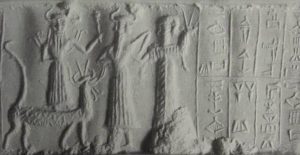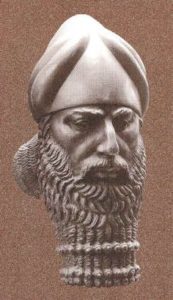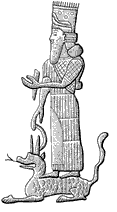http://oracc.museum.upenn.edu
(Texts: All Artifacts, Color Coding, & Writings in Bold Type With Italics Inside Parenthesis, are Added by Editor R. Brown, not the Authors, Translators, or Publishers!)
(gods in blue … mixed-breed demigods in teal)
Inscription on a Brick:
For the god Marduk, his lord: Ashurbanipal, king of the world (and) king of Assyria,
in order to ensure his good health had baked bricks made anew for Esagil and Etemenanki.
on a Brick:
For the god Marduk, his lord: Ashurbanipal, king of the world (and) king of Assyria,
son of Esarhaddon, king of the world, king of Assyria, (and) king of Babylon,
had baked bricks made anew for Etemenanki.
on a Brick:
For the god Asari, great lord, his lord:
Ashurbanipal, king of the world (and) king of Assyria,
son of Esarhaddon, king of the world, king of Assyria, (and) king of Babylon,
for the sake of his life had Etemenanki constructed anew.
on a Brick:
[For] the god Marduk, his lord:
Ashur[banipal], son of Esarhaddon, king of the world (and) [king of Assyria had]
baked bricks [made] anew for Etemena[nki].
on a Brick:
For the god Marduk, his lord: Ashurbanipal, king of the world (and) king of Assyria,
for the sake of his life had baked bricks made anew for Etemenanki.
on a Brick:
For the god Enlil, lord of the lands, his lord:
Ashurbanipal, his obedient shepherd, mighty king, king of the four quarters (of the world),
(re)built Ekur, his beloved temple, with baked bricks.
on a Brick:
For the god Enlil, king of the gods, sovereign of heaven (and) netherworld,
prince (who decides) the fates, (5) his lord:
Ashurbanipal, his obedient shepherd, mighty king, king of the world,
(re)built Egigunû with baked bricks.
on a Brick:
For the god Enlil, king of the gods, sovereign of heaven (and) netherworld,
prince (who decides) the fates, (5) his lord:
Ashurbanipal, his obedient shepherd, mighty king, king of the world,
skillfully (re)built with baked bricks … within Eḫursaggalama, his ancient royal cella.
on a Brick:
For the god Enlil, [(…) his lord]: Ashurbanipal, king of the world, king of [Assyria, (…)]
king of the four quarters (of the world), had (this) [(…)] built for the sake of his life.
on a Brick:
For the god Nanna, king of heaven (and) netherworld:
in order to ensure the good health of Ashurbanipal,
king of kings, his lord, Sîn-balāssu-iqbi, viceroy of Ur (and) Eridu,
who provides for Ekišnugal, the shining shrine of the Watery Abyss (apsû),
(re)built anew (10) Elugalgalgasisa, his beloved temple.
on a Brick:
{For the god Nanna], his [lo]rd, [… of As]hurbanipal, [king] of the world,
[Sî]n-balāssu-iqbi, (5) viceroy of Ur (and) Eridu,
for the sake of his life (re)built Elugalgalgasisa [an]ew.
on a Brick:
For the god Nanna, king of the Enlil (circle of) gods, his lord:
Sîn-balāssu-iqbi, viceroy of Ur, who provides for Eridu,
built Eušumgalana, the station of the goddess Ninkasi.
on a Brick:
(For) the god Nanna, king of the Enlil (circle) of gods, his lord:
Sîn-balāssu-iqbi, the viceroy of Ur, (5) who provides for Eridu,
built Eešbanda, the abode of the goddess Šuzianna (Enlil’s junior wife).
on a Brick
For the god Nanna, king of the Enlil (circle of) gods, his lord:
Sîn-balāssu-iqbi, viceroy of Ur, (5) who provides for Eridu,
built Eankikuga, the station of the god Kusu (Enlil’s daughter, Gibil’s spouse).
on a Brick:
For the god Nanna (Nannar), king of the Enlil (circle of) gods, his lord:
Sîn-balāssu-iqbi, viceroy of Ur, (5) who provides for Eridu,
built Eadgigi, the abode of the god Nusku (spouse to Sadarnuna, Anu’s daughter).
on a Brick:
For the god Nanna, king of the Enlil (circle of) gods, his lord:
Sîn-balāssu-iqbi, viceroy of Ur, (5) who provides for Eridu,
built Ekišibgalekura, the abode of the god Ninimma (Enki’s daughter with Ninkurra).
on a Brick:
[For (the god Nanna, king of the Enlil (circle of) gods], his [lord:
Sîn-balāssu-iq]bi, [viceroy of Ur, (5) who provides for Eri]du,
built [E..].kuga, [the abode/station] of the god Ennugi (Enlil’s son, the sheriff).
on a Brick:
For the god Nanna, king of the Enlil (circle of) gods, his lord:
Sîn-balāssu-iqbi, viceroy of Ur, (5) who provides for Eridu, built Eanšar, his royal abode.
on a Brick:
For (the god Nanna, king of the Enlil (circle of) gods, his lord:
Sîn-balāssu-iqbi, viceroy of Ur, (5) who provides for Eridu,
built Ešaduga, the abode of his Enlilship.
on a Brick:
For the god Nanna, king of the Enlil (circle of) gods, his lord:
Sîn-balāssu-iqbi, viceroy of Ur, (5) who provides for Eridu,
built Eašanamar, the abode of the god Enlil (Earth Colony Commander).
on a Cone:
For the goddess Ningal, queen of Ekišnugal, divine Ninmenna (“Lady-of-the-Crown”), beloved of Ur, his lady:
Sin-balassu-iqbi, viceroy of Ur, built anew the Gipāru,
the house of the supreme goddess, beloved wife of the god Sîn (Nannar).
After he constructed a statue, a (re-)creation of the goddess Ningal,
(and) brought it into the house of the wise god,
she took up residence in Enun, (which was) built (to be) her lordly abode.
on a Disc:
For the goddess Ningal, august lady, queen of the goddesses, (most) valiant of the great gods:
In order to ensure the good health of Ashurbanipal, king of Assyria, mighty king, (and) king of the world,
his lord, Sîn-balāssu-iqbi, son of Ningal-iddin, viceroy of Ur, Eridu and the Gurasimmu (tribe),
opened up (its) emplacement, (re)built (the well named) Puḫilituma, and established (it) for all time.
He made inexhaustible spring water appear in it.
With regard to any (future) prince who (re)opens this well,
may his days be long (and) his offspring extensive!
Copy from a baked brick from the debris of Ur:
the work of Amar-Suen, king of Ur, (which) Sîn-balāssu-iqbi, viceroy of Ur,
had discovered while looking for the ground-plan of Ekišnugal.
Nabû-šuma-iddin, son of Iddin-Papsukkal, the lamentation-priest of the god Sîn (Nannar),
saw (it) and wrote (it) down for display.
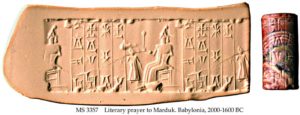 (prayer to Marduk by mixed-breed king)
(prayer to Marduk by mixed-breed king) (prayers before giant god Marduk, lord over Babylon)
(prayers before giant god Marduk, lord over Babylon)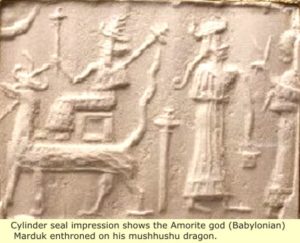 (Marduk on throne as supreme god with his golden scepter)
(Marduk on throne as supreme god with his golden scepter) 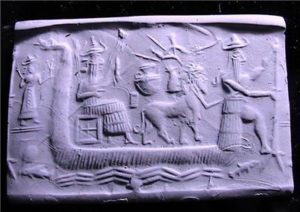
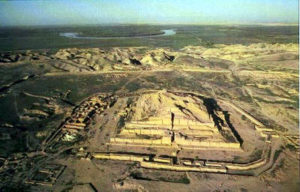
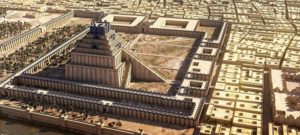
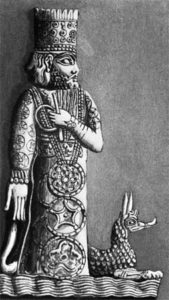
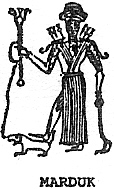
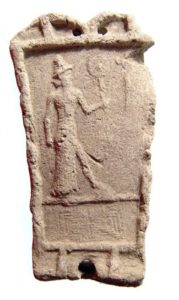
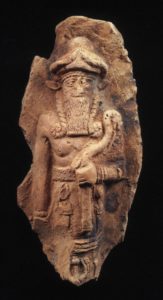
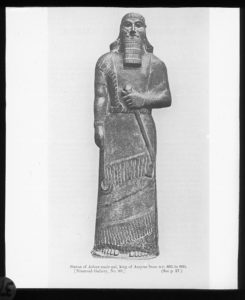
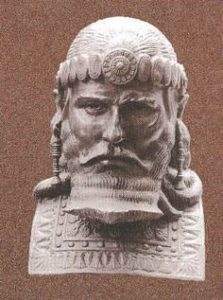
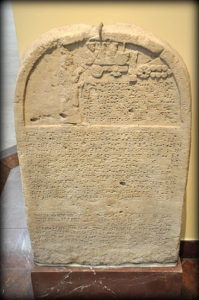
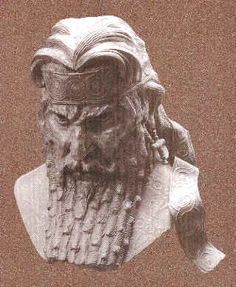 (
(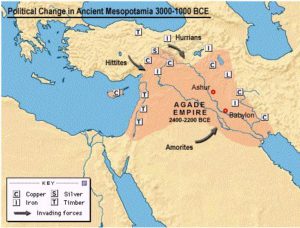
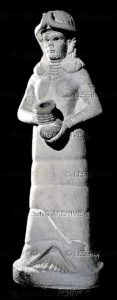
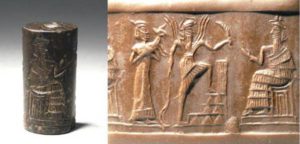
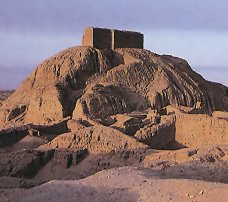
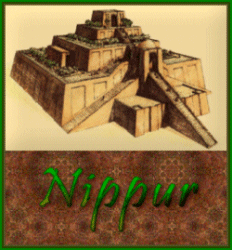
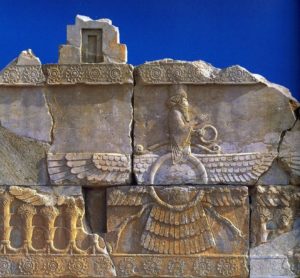
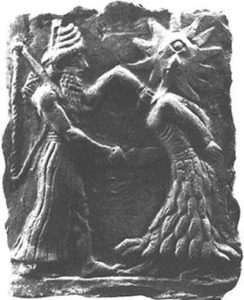
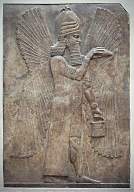 (
(
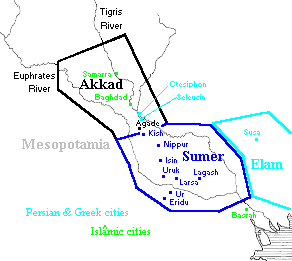
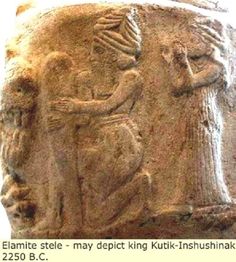
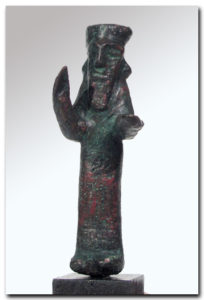
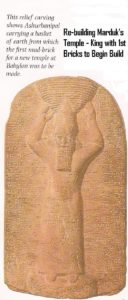 (
(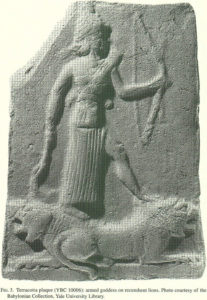 (
(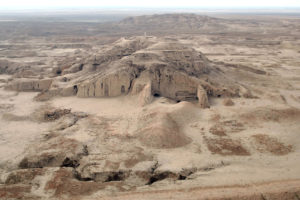
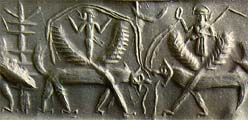
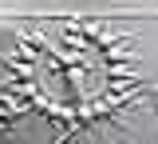
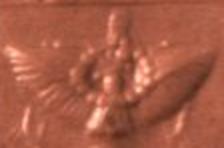
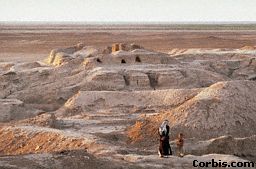
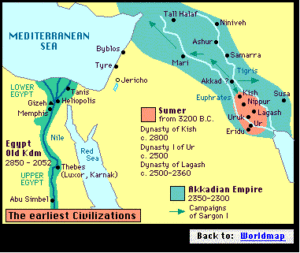
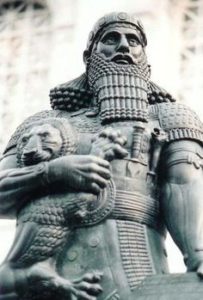
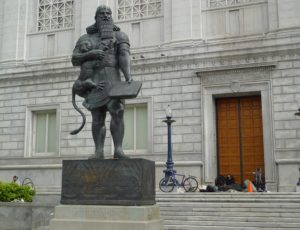
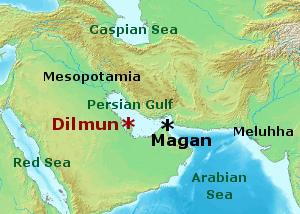
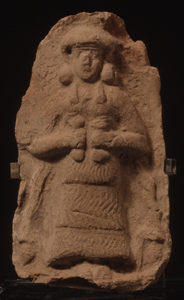
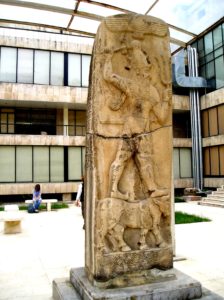
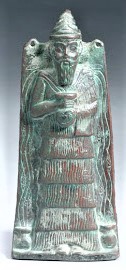
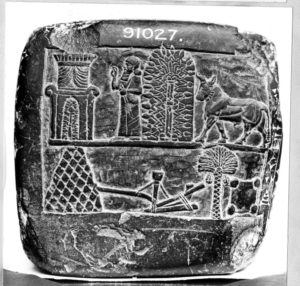
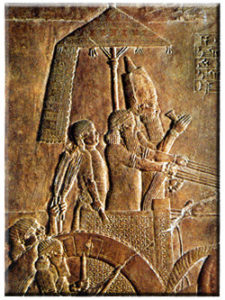
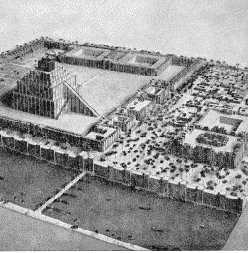
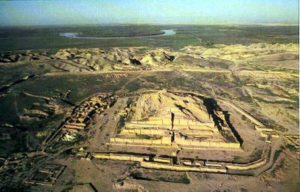
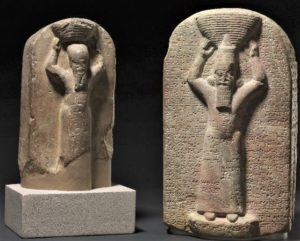
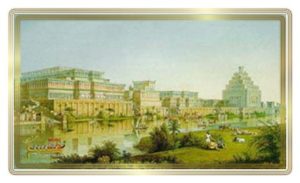
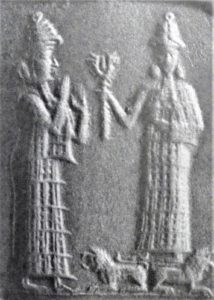
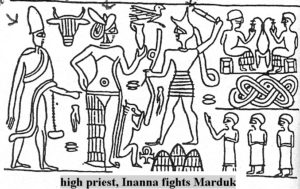
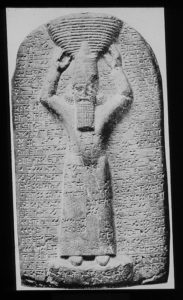
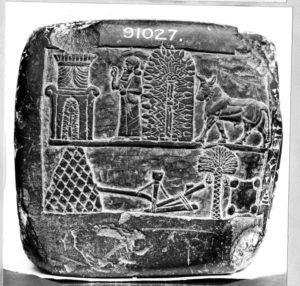
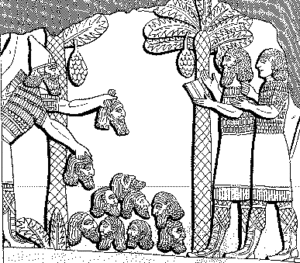
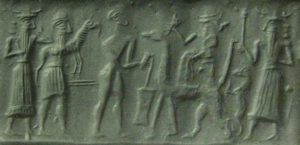
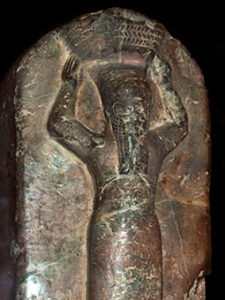
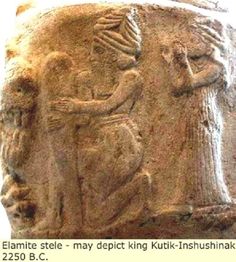
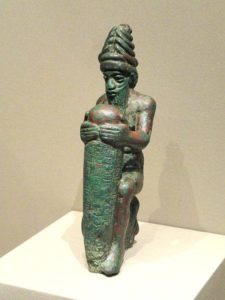
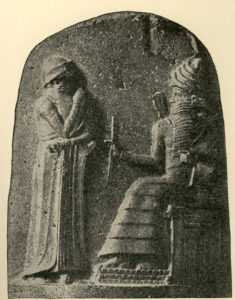
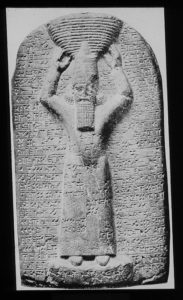

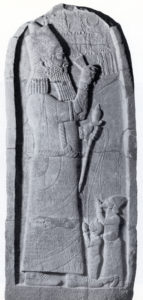
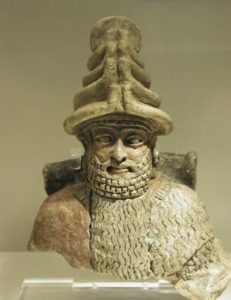
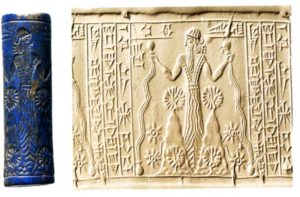
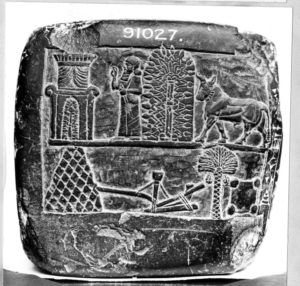
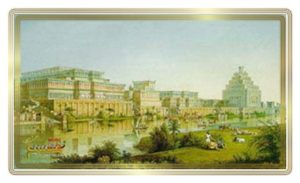
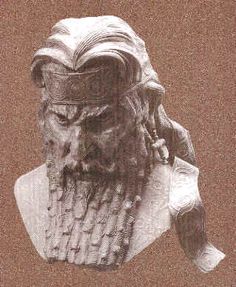
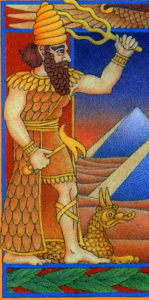
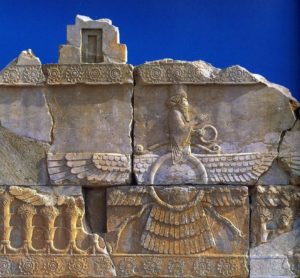
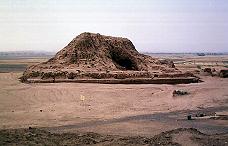
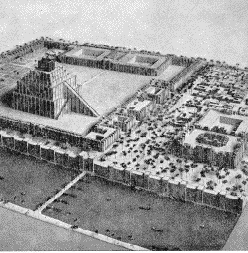
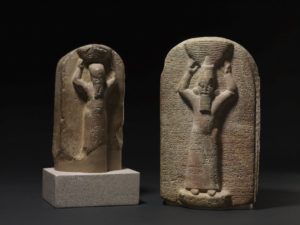
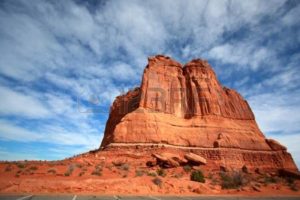
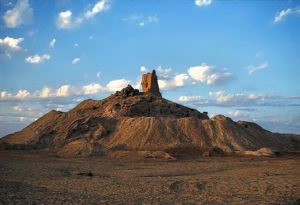
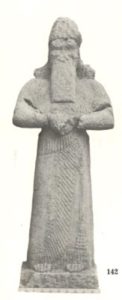
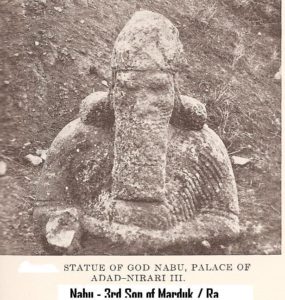
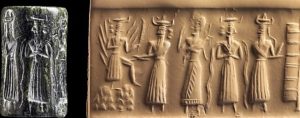
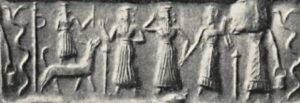
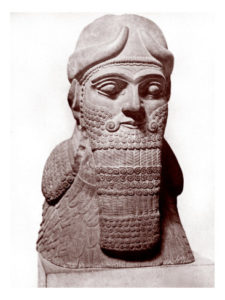
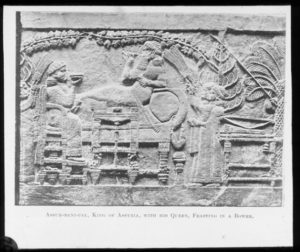

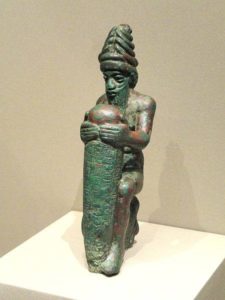
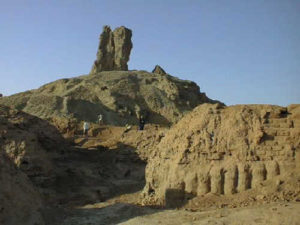 (
(